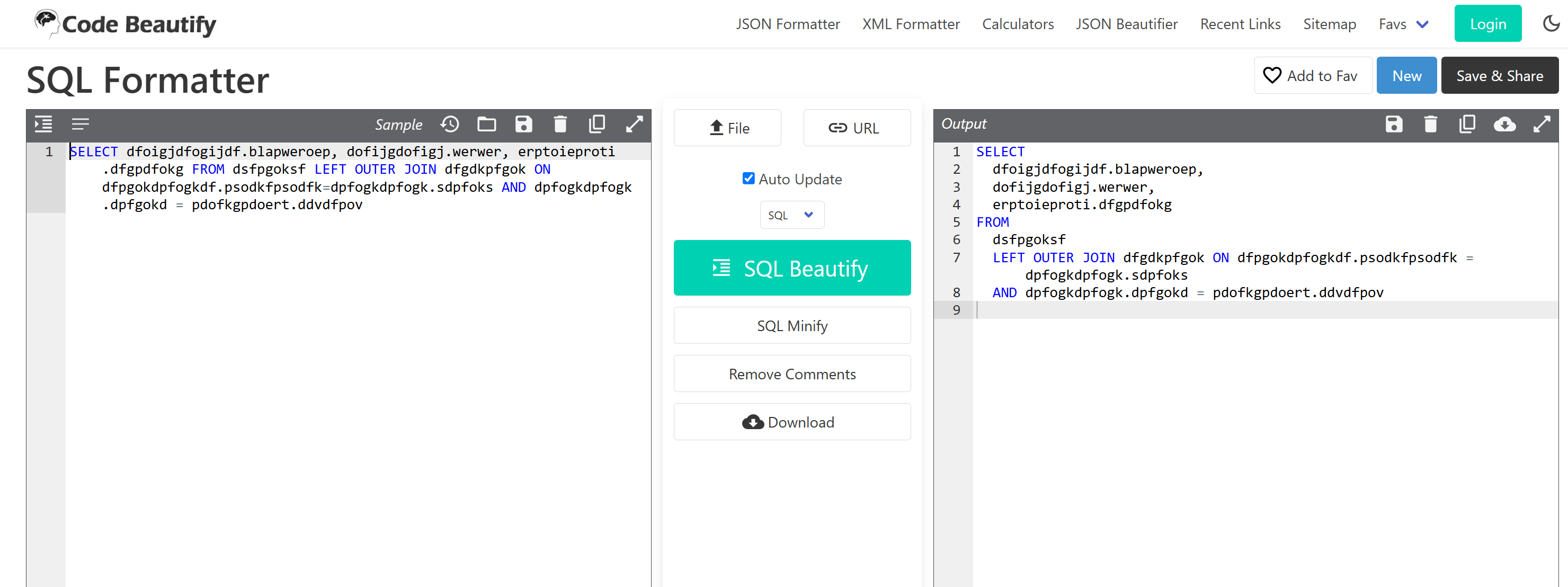Online SQL Formatter

https://codebeautify.org/sqlformatter all the way. It is a 3rd of a 4th link on Google, but it provides the best formatting and the best experience. You paste your ugly formatted SQL […]

https://codebeautify.org/sqlformatter all the way. It is a 3rd of a 4th link on Google, but it provides the best formatting and the best experience. You paste your ugly formatted SQL […]
A few days ago I discovered (with the help from my colleagues) that ARG instruction in Docker creates a true environment variable that is available inside the commands invoked at […]
When we write a JOIN statement in SQL, it usually goes like this SELECT {columns} FROM parent LEFT JOIN child ON child.parent_id = parent.id Does it ever make sense for […]
Just recording my amazement here. Suppose you have a GraphQL server. How do you ask it what’s the query schema? You would expect something like calling https://myserver/graphql/schema? Nah, that would […]
Yesterday, I had an Internet outage at home. The Internet was down for several hours. This is a perfect time to use Mobile hotspot. But alas, it wasn’t working. I […]
TL;DR: Python statement from module import obj creates a copy of the object in the importing scope. In other words, from module import obj is roughly equivalent to obj = __import__(‘module’).obj. […]
Our RabbitMQ client written in Go failed with the following error message: rabbitmq | 2024-10-23 17:54:01.311544+00:00 [error] operation basic.ack caused a channel exception precondition_failed: unknown delivery tag {message_tag} Taken at […]
Creation of Python packages underwent a few significant changes in the last 3-4 years. Here’s my note to self to remember what was changed/deprecated when: “Eggs” => “Wheel“ “Eggs” was […]

TL;DR Before transferring a new domain to a registrar, contact support, and make sure there are still live humans behind the robots. If there aren’t, RUN!!! UPDATE I’ve got my […]
When serializing a dataclass, by default marshmallow-dataclass emits nulls for all fields that have the value of None. This is not necessariy most of the time and pollutes the resulting […]